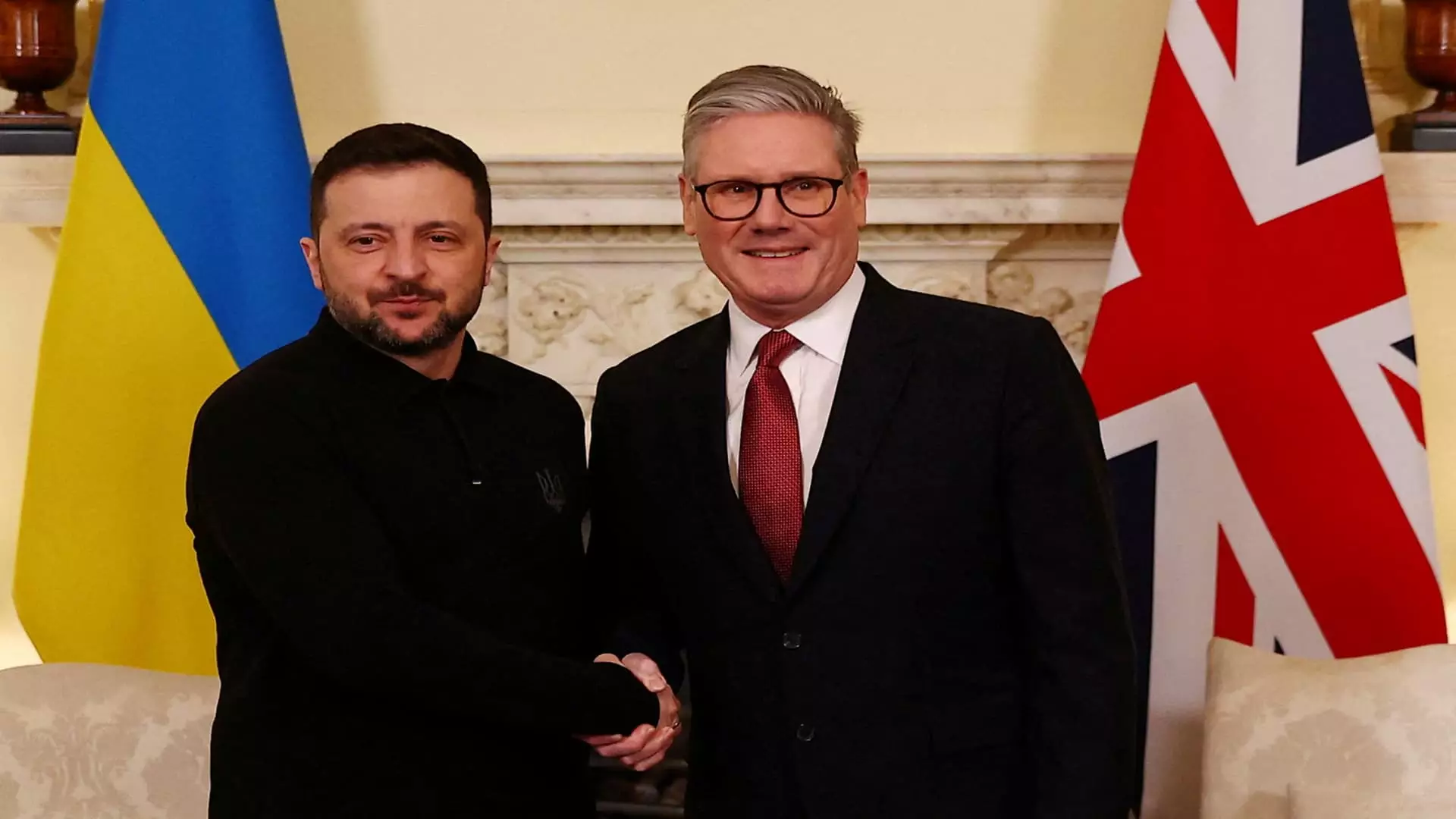In a poignant display of international solidarity, British Prime Minister Keir Starmer welcomed Ukrainian President Volodymyr Zelenskyy on Saturday with an embrace that signified the unwavering support of the United Kingdom for Ukraine. The meeting came on the heels of a contentious gathering between Zelenskyy and U.S. President Donald Trump at the White House, where Trump had voiced threats to diminish U.S. assistance to Ukraine. This visit underscored the growing concerns within Europe regarding the shifting dynamics of support for Ukraine in the wake of Trump’s controversial statements.
The backdrop of Zelenskyy’s trip to London is rife with geopolitical intrigue, especially following Trump’s recent confrontation with Europe on the Ukraine issue. During their Oval Office meeting, Trump appeared to challenge the U.S. commitment to Ukraine’s defense by suggesting a withdrawal of support. This change in tone has ignited alarm among European leaders, prompting French President Emmanuel Macron to reach out to both Trump and Zelenskyy in an attempt to foster composure in an increasingly volatile narrative. Macron’s call for calm reflects the anxiety of European nations that depend on steady U.S. engagement for their own security and that of Ukraine.
Arriving in the UK, Zelenskyy’s reception was overwhelmingly positive, with crowds gathered to express their support. Starmer emphasized the unity and resolve of the British people in standing by Ukraine, stating, “We stand with you and Ukraine for as long as it may take.” Such a statement reinforces the message that the UK remains a steadfast ally, contrasting sharply with the wavering support demonstrated in the U.S. This commitment was echoed as Zelenskyy engaged in discussions with Starmer regarding the provision of security guarantees for Ukraine, illustrating the urgent need for further collaboration among allies.
The discussions at Downing Street highlighted the importance of a coordinated European approach to the ongoing conflict, addressing both the immediate security needs of Ukraine and the long-term stability of the region. Zelenskyy characterized the talks as “important and warm,” hinting at a fruitful dialogue focused on creating a sustainable peace agreement. The urgency of these discussions cannot be understated, particularly as the specter of Russian aggression looms larger with each passing day.
Following the high-profile meeting with Zelenskyy, reactions from Russian officials were predictably critical, showcasing their belief that the Ukrainian president’s diplomatic efforts were met with humiliation in Washington. Their comments suggest a perception of vulnerability within Ukraine, which could encourage further Russian aggression. Meanwhile, the messages of support from European nations signal an important stand against any perceived weakness in the face of an unpredictable international landscape.
As Zelenskyy prepares for a summit with European leaders on Sunday to advance his peace agenda, the stakes continue to rise. His visit to both the UK and the U.S. will undoubtedly shape the future trajectory of Ukraine’s international relations and the ongoing conflict with Russia, underscoring the delicate balance of global diplomacy in these challenging times.

